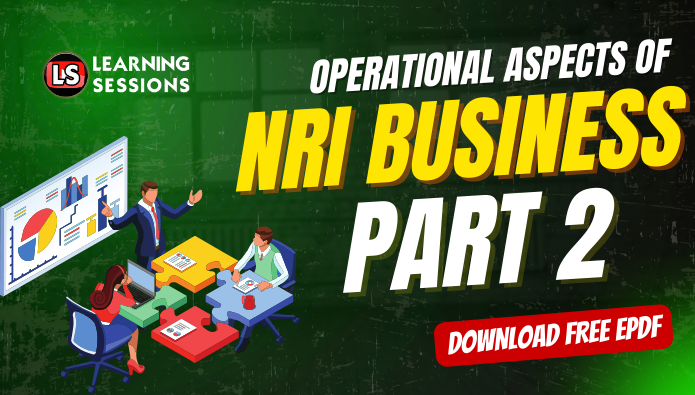Are you an NRI or planning to move abroad? Do you know how to manage your finances efficiently while staying compliant with Indian banking and taxation laws?
📚 JAIIB Study Resources 📚
👉 Check Here
👉 Check Here
👉 Check Here
👉 Get Tests Here
👉 Check Here
In this video, Ashish Jain, your trusted banking mentor, simplifies these complex topics. Whether you’re an NRI, a banking professional preparing for JAIIB & CAIIB, or someone looking to understand international banking better—this video is a must-watch!
📌 What’s Inside?
- Difference between NRE, NRO, and FCNR accounts
- International credit cards for NRIs
- Tax rules for NRIs (TDS, Form 15CA & 15CB)
- Special banking rules for Pakistani & Bangladeshi citizens
- Repatriation of assets and remittance limits
👉 Before we dive in, watch the complete breakdown here:
Understanding NRI Banking & Financial Regulations
1. What Are NRE, NRO & FCNR Accounts?
NRE Account: Used by NRIs to park foreign earnings in India. Funds are fully repatriable and tax-free.
NRO Account: For managing local Indian income (rent, dividends, pension). TDS is applicable on interest earnings.
FCNR Account: A fixed deposit account in foreign currency with tax-free interest in India.
Benefits of These Accounts:
- Secure and hassle-free international transactions.
- Easy repatriation of funds as per RBI guidelines.
- Higher interest rates than many foreign country savings accounts.
👉 Key Takeaway: If you want to keep your foreign earnings in India tax-free, NRE and FCNR are the best choices.
2. International Credit Cards for NRIs
Did you know NRIs & PIOs can get international credit cards? These cards work in India & abroad with payments linked to NRE/NRO/FCNR balances.
🔹 Example: Ravi, an NRI in the UK, uses his SBI international credit card for shopping in London and pays directly from his NRE account.
How to Apply for an International Credit Card?
- Visit your bank’s official website and check NRI services.
- Submit an online application with proof of NRI status.
- Ensure you have a valid NRE/NRO account for linking payments.
👉 Pro Tip: Always check forex conversion charges before using credit cards internationally.
3. Taxation Rules for NRIs: What You Must Know
📌 TDS on Interest Earned:
- NRO Accounts: TDS is applicable.
- NRE & FCNR Accounts: No TDS.
📌 Remittance & Tax Forms:
- Form 15CA: Self-declaration for remittance.
- Form 15CB: Certified by a Chartered Accountant for tax clearance.
NRIs should consult a financial advisor to maximize tax benefits while complying with Indian tax laws.
https://learningsessions.in/free-epdf-jaiib-ppb-chapter-9-module-a-part-1-nro-nre-fcnr-rules/
4. Special Banking Rules for Pakistani & Bangladeshi Citizens
📌 Pakistani Citizens: Need RBI approval for opening NRO accounts.
📌 Bangladeshi Citizens: Must have a valid FRO/FRRO permit.
These rules are in place due to diplomatic and regulatory concerns between India and these countries.
5. Repatriation & Remittance Rules
✅ NRIs can repatriate up to $1 million per financial year from:
- NRO account balance
- Sale proceeds of property
- Inheritance money
Steps for Repatriation:
- Fill out the remittance form provided by the bank.
- Provide proof of the source of funds (e.g., sale deed for property).
- Submit Form 15CA/15CB for tax clearance.
Conclusion
Understanding NRI banking, taxation, and remittance rules is crucial for financial planning. This video equips you with all the essential knowledge to handle your accounts wisely.
💡 What to do next?
- ✅ Like & Share this video with fellow NRIs and banking aspirants.
- ✅ Comment Below: Ask your doubts, and I’ll answer them!
- ✅ Subscribe to the channel for more banking insights!
🚀 Want the PDF notes for this session? Download below 👇





